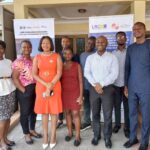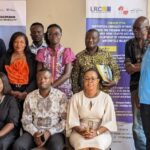The LRC has participated in a 3-day workshop on State reporting on the African Charter on Human and Peoples Rights (African Charter) and the Protocol to the African Charter on Human and Peoples Rights on the Rights of Women in Africa (Maputo Protocol). The workshop which was attended by Enock Jengre of the LRC was aimed at strengthening the capacity of state parties to the African Charter and the Maputo Protocol to fulfil their reporting obligations to the African Commission.
The Maputo Protocol was adopted in July 2003 and came into force in November 2005. As at May 1, 2019, the Maputo Protocol has been ratified by 40 African States. Presenting on the Role of Civil Society and National Human Rights Institutions in the state party reporting process, the Executive Director of African Centre for International Law and Accountability Mr. William Nyarko, Esq. stressed that Ghana ratified the Maputo Protocol on June 13, 2007. Before then, Ghana had earlier ratified related treaty being the Convention on the Elimination of All Forms of Discrimination Against Women (CEDAW) on January 2, 1986. According to Mr. Nyarko, the last time Ghana reported on the African Charter on Human and Peoples Rights (African Charter) was in the year 2000 having initially reported in the year 1993. This implies that Ghana as a State is in ‘arrears’ of submitting about nine (9) reports as every state is expected to submit its report in every two (2) years after ratifying.
Generally, State reporting is an essential component in monitoring the implementation of the Maputo Protocol. State reporting serves a number of crucial functions including; stock-taking of the concrete steps undertaken by ratifying states towards compliance with treaty obligations; identifying challenges to full implementation of treaty obligations as well as providing an opportunity for constructive engagement with the African Commission in order that States Parties may benefit from their recommendations.
A resource person of the Centre for Human Rights of the University of Pretoria, South Africa, Professor Michelo Hansungule took participants inter alia state reporting process in Africa: an overview of the reporting guidelines issued by the African Commission to the African Charter and the Maputo Protocol and the art of state party report drafting, writing and researching. He encouraged the State to endeavor to submit its reports and comply with its reporting obligations.
The workshop which took place from the 9th to 11th October, 2019 at Aqua Safari, Ada, Greater Accra Region was organized by the Centre for Human Rights of the University of Pretoria in partnership with Moremi Initiative for Women`s Leadership in Africa. It targeted representatives from Government Ministries, ideally government task team National Human Rights Commissions as well as civil society who are involved in the state reporting/report drafting process in Ghana.





